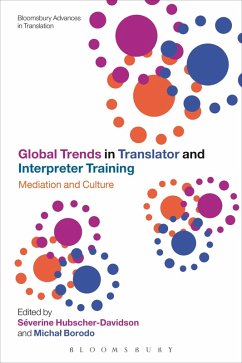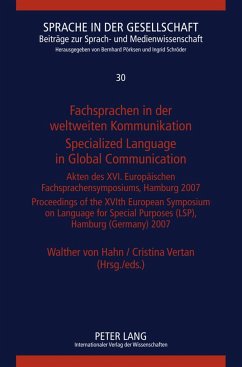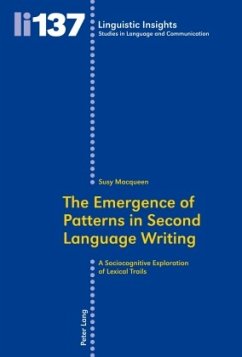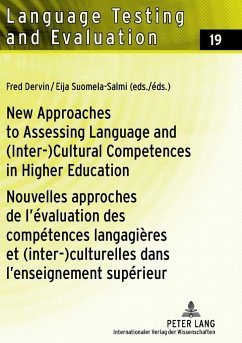
Telecollaboration 2.0
Language, Literacies and Intercultural Learning in the 21 st Century
Herausgegeben: Guth, Sarah; Helm, Francesca
Versandkostenfrei!
Versandfertig in 6-10 Tagen
138,05 €
inkl. MwSt.

PAYBACK Punkte
0 °P sammeln!
Telecollaboration, or online intercultural exchange, has become widely recognised as an effective way to promote the development of intercultural communicative competence and language skills. However, the study and implementation of new 2.0 environments such as wikis, Skype, virtual worlds and gaming for telecollaboration is still in its infancy. How can these multilingual, multimodal, collaborative environments be used to promote language and intercultural learning? What are the implications for teachers and learners and what new literacies are required? Do they offer an added-value? This boo...
Telecollaboration, or online intercultural exchange, has become widely recognised as an effective way to promote the development of intercultural communicative competence and language skills. However, the study and implementation of new 2.0 environments such as wikis, Skype, virtual worlds and gaming for telecollaboration is still in its infancy. How can these multilingual, multimodal, collaborative environments be used to promote language and intercultural learning? What are the implications for teachers and learners and what new literacies are required? Do they offer an added-value? This book seeks to answer these questions and many more by bringing together the experience and expertise of researchers and practitioners alike. The authors offer critical stances, new frameworks and practical case studies to help the reader 'navigate' the world of Telecollaboration 2.0.












